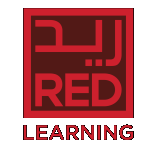Effective learning involves a combination of understanding the underlying principles and concepts of a subject, applying them in practical contexts, and internalizing the knowledge through active engagement. Simply memorizing information may help in the short term, but true mastery and comprehension come from a deeper understanding.
Here are some effective ways to learn HR management or any subject:
- Understand the Foundations: Before diving into any subject, it’s essential to establish a strong foundation of knowledge. This involves understanding the core principles, theories, and frameworks that underpin the subject matter. For HR management, this could include concepts such as organizational behavior, labor laws, recruitment and selection processes, performance management, and employee relations. By understanding these foundational concepts, learners can contextualize new information and build upon existing knowledge more effectively.
- Engage in Active Learning: Active learning involves actively participating in the learning process rather than passively receiving information. This could take various forms, such as engaging in discussions, asking questions, solving problems, or participating in group activities. By actively engaging with the material, learners can deepen their understanding, identify areas of confusion, and connect theoretical concepts to real-world applications.
- Practice Application: Theory is important, but practical application is where true mastery occurs. Learners should seek out opportunities to apply their knowledge in real-world settings. This could involve internships, co-op programs, volunteer work, or hands-on projects. By applying theoretical concepts to practical situations, learners can develop problem-solving skills, gain valuable experience, and solidify their understanding of the subject matter.
- Seek Feedback: Feedback is essential for growth and improvement. Learners should actively seek feedback from peers, mentors, instructors, or supervisors. Constructive feedback helps learners identify their strengths and weaknesses, correct misconceptions, and refine their skills. By incorporating feedback into their learning process, learners can accelerate their progress and continuously improve.
- Stay Curious and Keep Learning: Learning is a lifelong journey, and curiosity is its fuel. Learners should cultivate a curiosity-driven mindset, constantly seeking out new knowledge and opportunities for growth. This could involve reading books, attending workshops, listening to podcasts, or pursuing further education. By staying curious and open-minded, learners can stay abreast of industry trends, discover new perspectives, and adapt to changing circumstances.
- Teach Others: Teaching is a powerful learning tool. When learners teach others, they must articulate their understanding, clarify concepts, and field questions. This process reinforces their own learning and deepens their understanding of the subject matter. Learners can teach others through tutoring, mentoring, leading study groups, or giving presentations. By sharing their knowledge with others, learners not only solidify their own understanding but also contribute to the learning of their peers.
- Use Multiple Learning Modalities: People learn in different ways, so it’s important to use a variety of learning modalities. This could include reading textbooks, watching instructional videos, attending lectures, participating in hands-on activities, or engaging in online forums. By diversifying their learning experiences, learners can cater to their individual learning preferences and reinforce their understanding through multiple channels.
- Review and Reflect: Regular review and reflection are critical components of the learning process. Learners should periodically review their notes, textbooks, or other learning materials to reinforce their understanding and identify areas that require further attention. Reflection allows learners to consolidate their learning, make connections between concepts, and set goals for future learning. By incorporating review and reflection into their learning routine, learners can optimize their learning outcomes and maintain a growth mindset.
By adopting these strategies and embracing a proactive approach to learning, individuals can master HR management or any subject effectively. Through a combination of foundational understanding, active engagement, practical application, and continuous learning, learners can achieve their learning goals and thrive in their chosen field.




